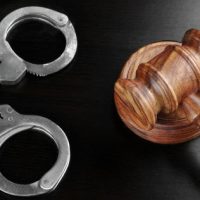Defending Against Child Abuse Allegations In Florida

Child abuse is rightfully considered one of the most reprehensible crimes one can commit. It is also one of the worst crimes one can be accused of – especially when they are innocent. These types of allegations can come about from a variety of situations. Sometimes they are raised by an upset ex or their family, or by somebody seeking to get another person in trouble. Other times they arise through a simple misunderstanding of what occurred. Regardless, the alleged perpetrator has certain rights in the criminal justice process, and the prosecution has a burden of proof they must meet.
Penalties and Consequences of a Child Abuse Conviction in Florida
A child abuse conviction in Florida – unless it is aggravated abuse involving great bodily harm – is a Third Degree Felony punishable by up to 5 years in prison, a $5,000 fine, and 5 years of probation.
Aggravated child abuse in Florida is a First Degree Felony punishable by up to 30 years in prison and a $10,000 fine, in addition to other associated costs and probation.
In addition to the jail time, fines, probation, and other penalties a court can impose, an individual convicted of child abuse faces permanent harm to their reputation and ability to find work, housing, and other necessities of life. If you have been wrongfully accused, all of this is at stake when defending against child abuse allegations.
What Prosecutors Must Prove in a Florida Child Abuse Case
Under Florida’s Child Abuse Statute, (Florida Statutes, Sec. 827.03), child abuse can include:
- Intentionally inflicting physical or mental harm upon a child;
- Intentional acts that could “reasonably be expected to result” in physical or emotional harm to a child;
- Actively encouraging someone else to act in a way that can reasonably be expected to result in harm to a child.
Aggravated child abuse under Florida law may include the following:
- Aggravated battery upon a child;
- Willfully torturing, maliciously punishing, or caging a child;
- Knowingly and willfully abusing a child in a manner that leads to great bodily harm, or permanent disability or disfigurement.
While the statutory language speaks of intentional acts, the law also encompasses child neglect as well. Neglect in child abuse cases can be an “intentional act” because it is an “act of omission” – that is, an affirmative decision not to do something. For example, not taking a child to receive critical medical care, or not providing a child with adequate food or clothing. Other times, neglect may include failures by parents or caretakers to provide even minimal levels of supervision. Neglect is the most common cause of serious illness or death in child abuse cases, meanwhile. For someone’s neglectful acts to rise to the level of criminal child abuse, however, they must go beyond a mere lapse in judgment and constitute active neglect and disregard for a child’s well-being.
To prove “child abuse” at trial and obtain a conviction, prosecutors must show beyond a reasonable doubt that:
- The defendant intentionally inflicted physical or mental harm upon the alleged victim (or acted intentionally in a way that could be reasonably expected to cause physical or emotional injury), or otherwise acted in a manner defined under Florida Statutes, Sec. 827.03;
- The victim was under 18 years old at the time of the incident, or series of incidents.
A conviction of aggravated child abuse would require additional showings of great bodily harm, or permanent disability/disfigurement.
Potential Defenses to a Child Abuse Charge in Florida
All is not lost if you are facing a child abuse allegation in Florida. Numerous critical defenses may be available, including:
- Factual disputes as to who allegedly committed the abuse;
- Lack of intent or willfulness by the defendant;
- Defendant’s acts could not have been expected to lead to physical or mental harm;
- The alleged victim’s accusations are false and unsupported by evidence or eyewitness testimony;
- The accusations involved an anonymous tip from somebody holding a personal vendetta against the defendant.
One additional affirmative defense available in Florida is parental privilege. This is the concept that a parent is entitled to exercise reasonable child discipline and can’t be criminally prosecuted for those actions (unless they rise to the level of abuse under Florida law).
When to Consult an Attorney About Child Abuse Allegations
If you have been investigated or charged with any type of child abuse offense, you must consult a skilled criminal defense attorney as soon as possible. With so much in your life at stake, you can’t afford to take shortcuts or create your own plan. Our Orlando child abuse attorneys have experience fighting these allegations from the start – sometimes before criminal charges are even filed.
Let Our Orlando-Area Criminal Defense Attorneys Prepare Your Defense Against Child Abuse Allegations
Child abuse is a serious crime – one of the worst crimes imaginable. Being wrongly accused of child abuse can be a nightmare in itself, however. An allegation and conviction can lead not only to jail time, but loss of parental rights, inability to find work, and other devastating consequences. At Joshi Law Firm, PA, our child abuse defense attorneys will thoroughly review your case and confront the prosecution’s evidence on your behalf. Contact us today for help.
Source:
leg.state.fl.us/Statutes/index.cfm?App_mode=Display_Statute&Search_String=&URL=0700-0799/0775/Sections/0775.082.html

